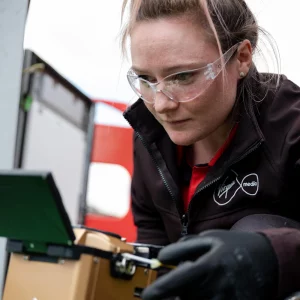Sponsored Links
ISP Viatel UK Urges Caution Over Extended BT FTTC Broadband Rollout
Posted: 13th May, 2010 By: MarkJ
 Business communications provider Viatel has given a cautious welcome to BT's announcement that it will expand the planned reach of its superfast broadband network from 40% of UK homes to 66% by 2015. However it has warned businesses "not to get too carried away" because issues of patchy availability and variable speeds are unlikely to vanish overnight.
Business communications provider Viatel has given a cautious welcome to BT's announcement that it will expand the planned reach of its superfast broadband network from 40% of UK homes to 66% by 2015. However it has warned businesses "not to get too carried away" because issues of patchy availability and variable speeds are unlikely to vanish overnight.Steve Powell, Product Manager for connectivity at Viatel, said:
"Given the uncertainty over which policies will take priority in the new UK Government, BT’s investment is more important than ever before – especially for businesses that rely on broadband connections for economic prosperity and to fend off the competition.
BT’s planned roll out should even up the playing field for more organisations, but for those left out, the issue remains of how to actually deliver superfast speeds to the whole country."
"Given the uncertainty over which policies will take priority in the new UK Government, BT’s investment is more important than ever before – especially for businesses that rely on broadband connections for economic prosperity and to fend off the competition.
BT’s planned roll out should even up the playing field for more organisations, but for those left out, the issue remains of how to actually deliver superfast speeds to the whole country."
Viatel also points out that hybrid Fibre to the Cabinet (FTTC) or even true fibre ‘superband’ Fibre to the Premises (FTTP) are still subject to the same problems of contention that plague shared networks during busy times today.
Powell concluded:
"Speed is one thing, but it should not be forgotten that all of these new services are to be delivered on massively shared networks, so just as crucial is the ability to prioritise different types of traffic so such data can avoid these bottlenecks, delays and dropped calls.
Quality of Service will help prevent this by, for example, ensuring that voice traffic is given priority over email and web access. Businesses that run these applications without end to end QoS could continue to see some serious detrimental effects."
"Speed is one thing, but it should not be forgotten that all of these new services are to be delivered on massively shared networks, so just as crucial is the ability to prioritise different types of traffic so such data can avoid these bottlenecks, delays and dropped calls.
Quality of Service will help prevent this by, for example, ensuring that voice traffic is given priority over email and web access. Businesses that run these applications without end to end QoS could continue to see some serious detrimental effects."
The ISP notes that while Quality of Service (QoS) will be available on these networks in the future, at present this is often not the case and all businesses need to be aware that line speed is not the only key factor to consider.
Viatel, which works alongside BT, is however confident that these issues will all be overcome. But national or even patchy local availability could still be a problem for a few years yet.
Search ISP News
Search ISP Listings
Search ISP Reviews
Latest UK ISP News








Cheap BIG ISPs for 100Mbps+
150,000+ Customers | View More ISPs
Cheapest ISPs for 100Mbps+
Modest Availability | View More ISPs
Latest UK ISP News
Helpful ISP Guides and Tips
Sponsored Links
The Top 15 Category Tags
- FTTP (6802)
- BT (3881)
- Politics (3075)
- Business (2767)
- Openreach (2663)
- Building Digital UK (2512)
- Mobile Broadband (2475)
- FTTC (2142)
- Statistics (2128)
- 4G (2092)
- Virgin Media (2025)
- Ofcom Regulation (1779)
- 5G (1732)
- Fibre Optic (1604)
- Wireless Internet (1595)
Sponsored
Copyright © 1999 to Present - ISPreview.co.uk - All Rights Reserved - Terms , Privacy and Cookie Policy , Links , Website Rules






























